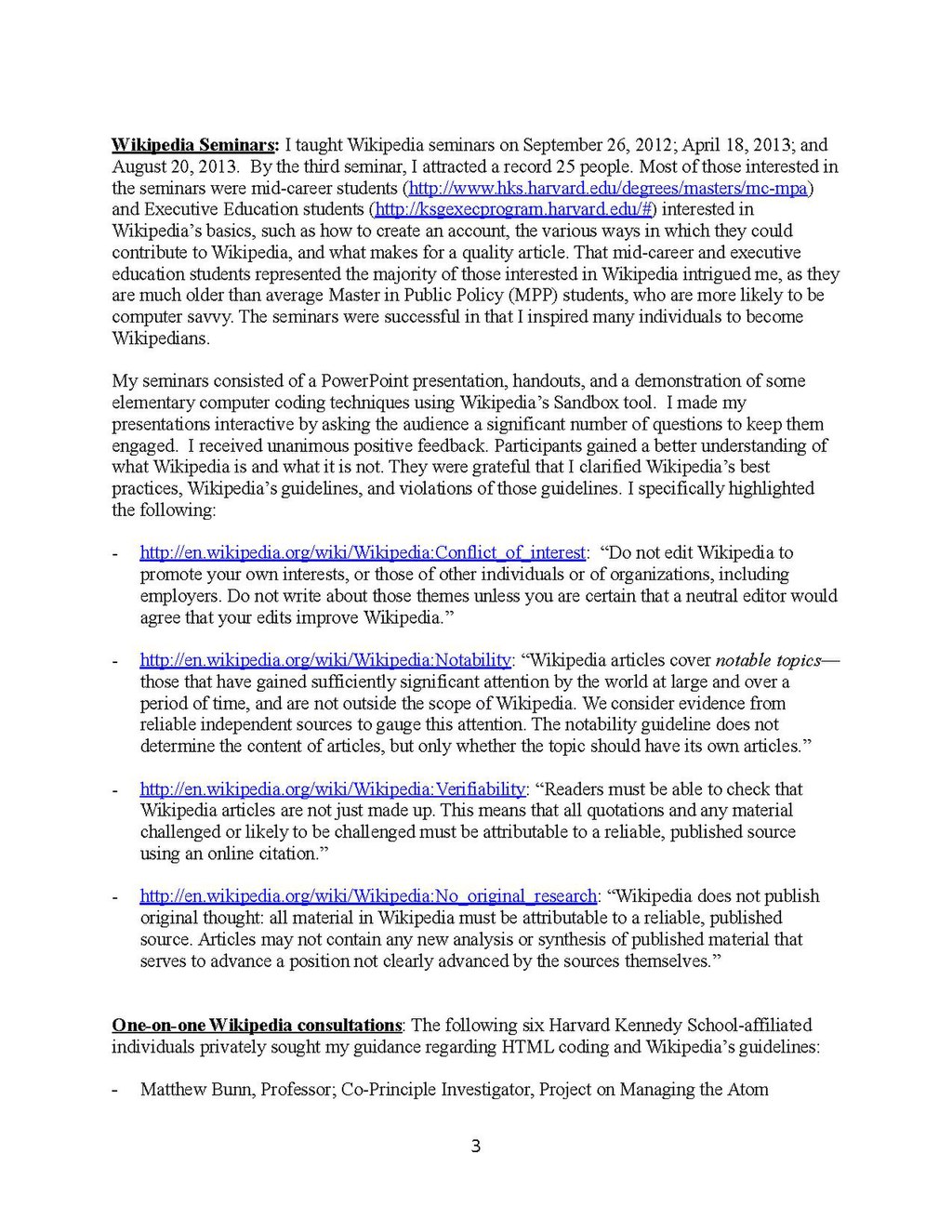Wikipedia Seminars: I taught Wikipedia seminars on September 26, 2012; April 18, 2013; and August 20, 2013. By the third seminar, I attracted a record 25 people. Most of those interested in the seminars were mid-career students (http://www.hks.harvard.edu/degrees/masters/mc-mpa) and Executive Education students (http://ksgexecprogram.harvard.edu/#) interested in Wikipedia's basics, such as how to create an account, the various ways in which they could contribute to Wikipedia, and what makes for a quality article. That mid-career and executive education students represented the majority of those interested in Wikipedia intrigued me, as they are much older than average Master in Public Policy (MPP) students, who are more likely to be computer savvy. The seminars were successful in that I inspired many individuals to become Wikipedians.
My seminars consisted of a PowerPoint presentation, handouts, and a demonstration of some elementary computer coding techniques using Wikipedia's Sandbox tool. I made my presentations interactive by asking the audience a significant number of questions to keep them engaged. I received unanimous positive feedback. Participants gained a better understanding of what Wikipedia is and what it is not. They were grateful that I clarified Wikipedia's best practices, Wikipedia's guidelines, and violations of those guidelines. I specifically highlighted the following:
- http://en.wikipedia.org/wiki/Wikipedia:Conflict_of_interest: "Do not edit Wikipedia to promote your own interests, or those of other individuals or of organizations, including employers. Do not write about those themes unless you are certain that a neutral editor would agree that your edits improve Wikipedia."
- http://en.wikipedia.org/wiki/Wikipedia:Notability: "Wikipedia articles cover notable topics— those that have gained sufficiently significant attention by the world at large and over a period of time, and are not outside the scope of Wikipedia. We consider evidence from reliable independent sources to gauge this attention. The notability guideline does not determine the content of articles, but only whether the topic should have its own articles."
- http://en.wikipedia.org/wiki/Wikipedia:Verifiability: "Readers must be able to check that Wikipedia articles are not just made up. This means that all quotations and any material challenged or likely to be challenged must be attributable to a reliable, published source using an online citation."
- http://en.wikipedia.org/wiki/Wikipedia:No_original_research: "Wikipedia does not publish original thought: all material in Wikipedia must be attributable to a reliable, published source. Articles may not contain any new analysis or synthesis of published material that serves to advance a position not clearly advanced by the sources themselves."
One-on-one Wikipedia consultations: The following six Harvard Kennedy School-affiliated individuals privately sought my guidance regarding HTML coding and Wikipedia's guidelines:
- Matthew Bunn, Professor; Co-Principle Investigator, Project on Managing the Atom
3
